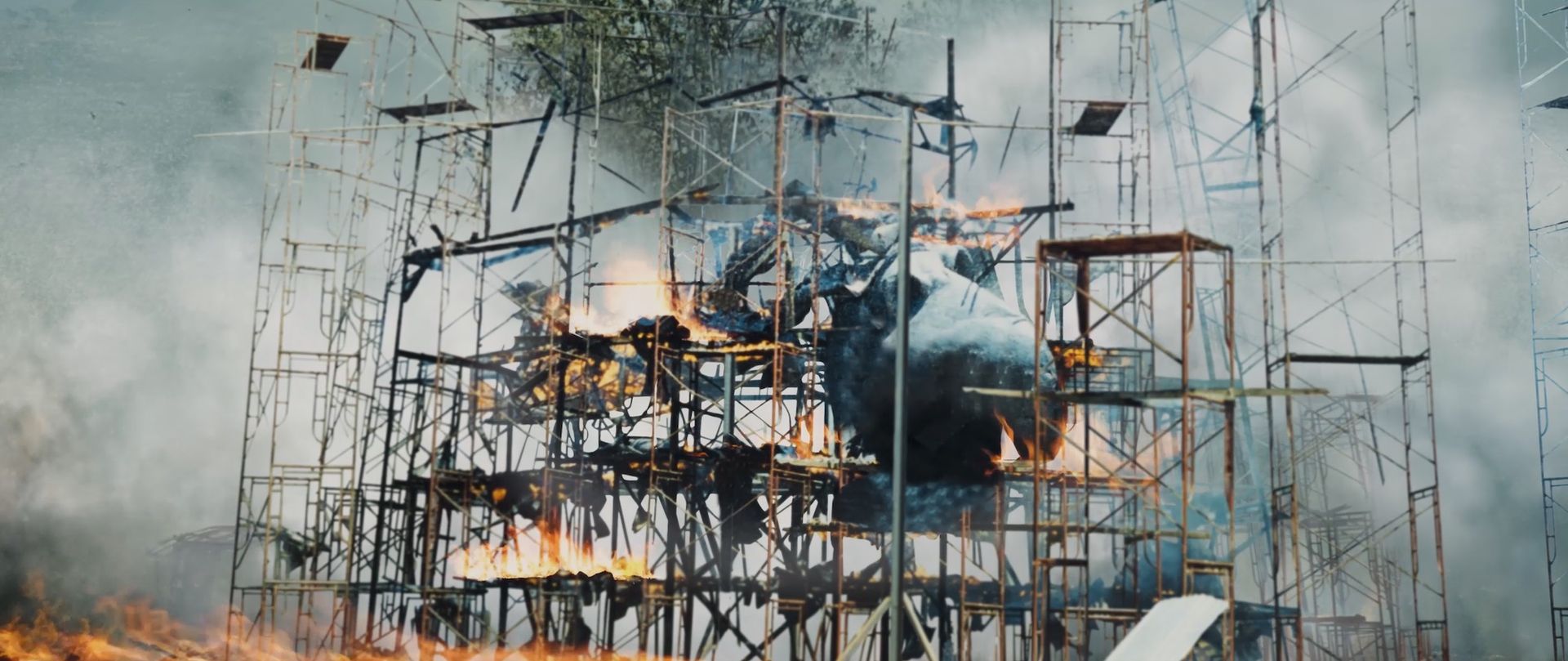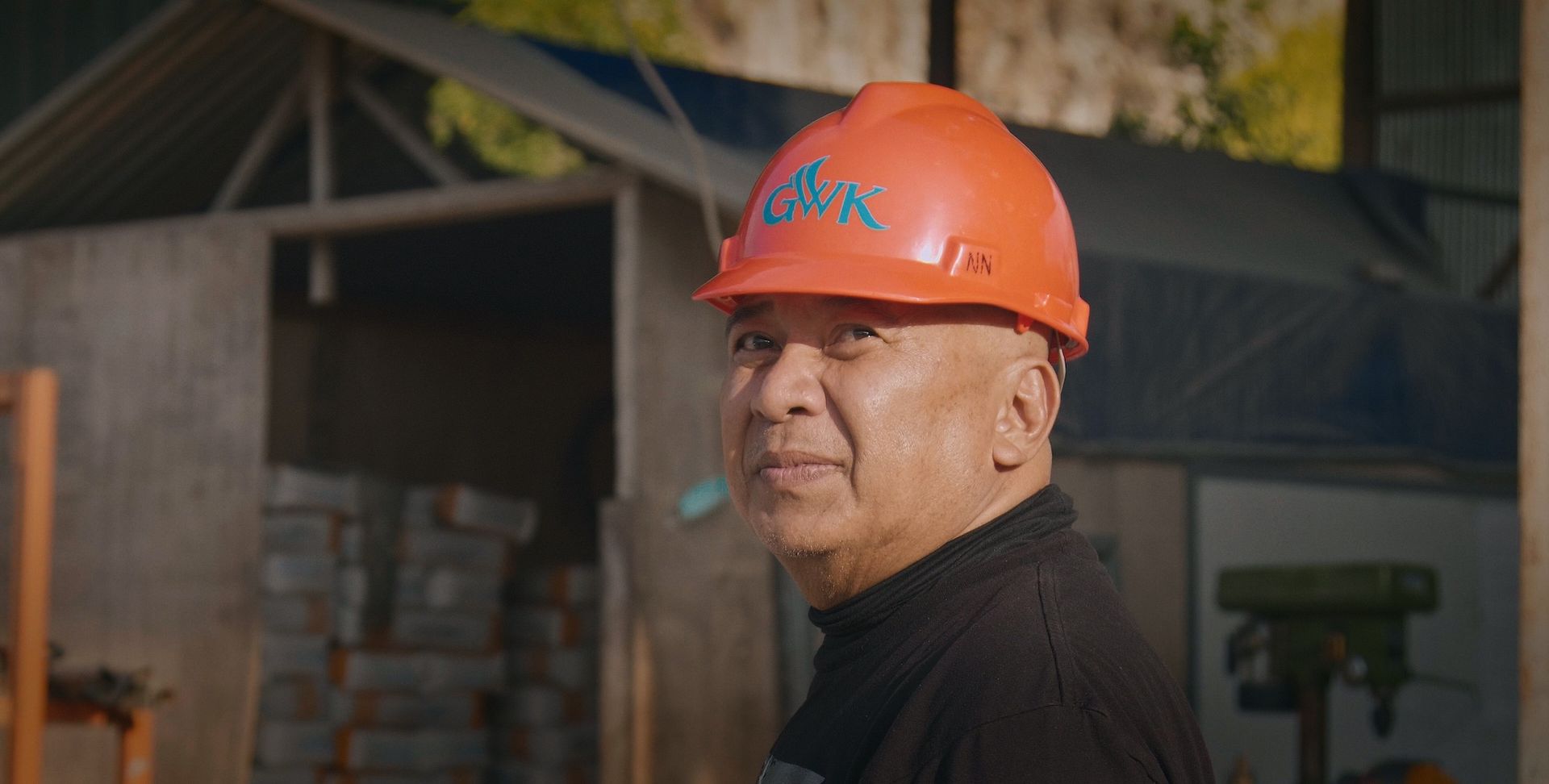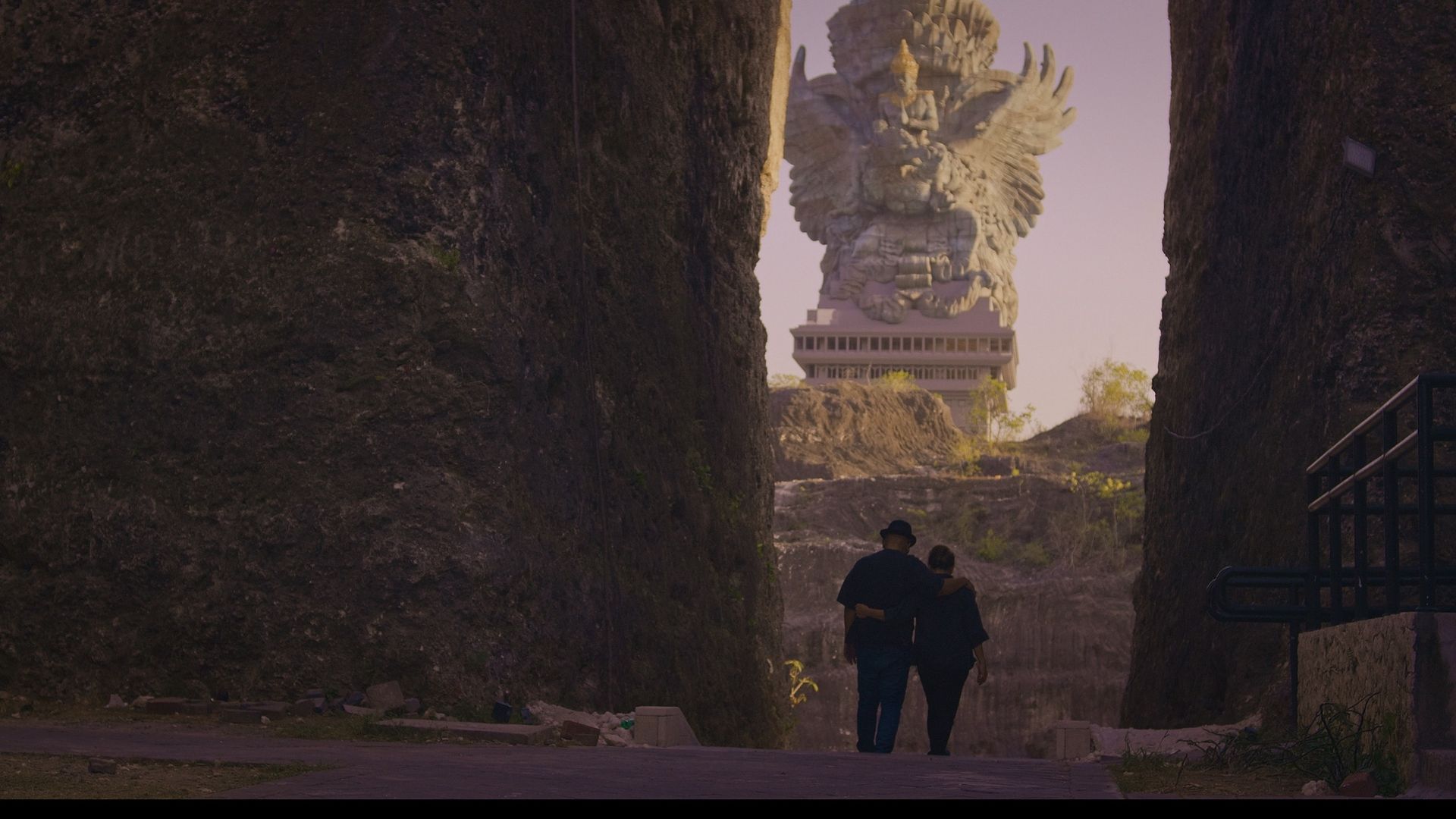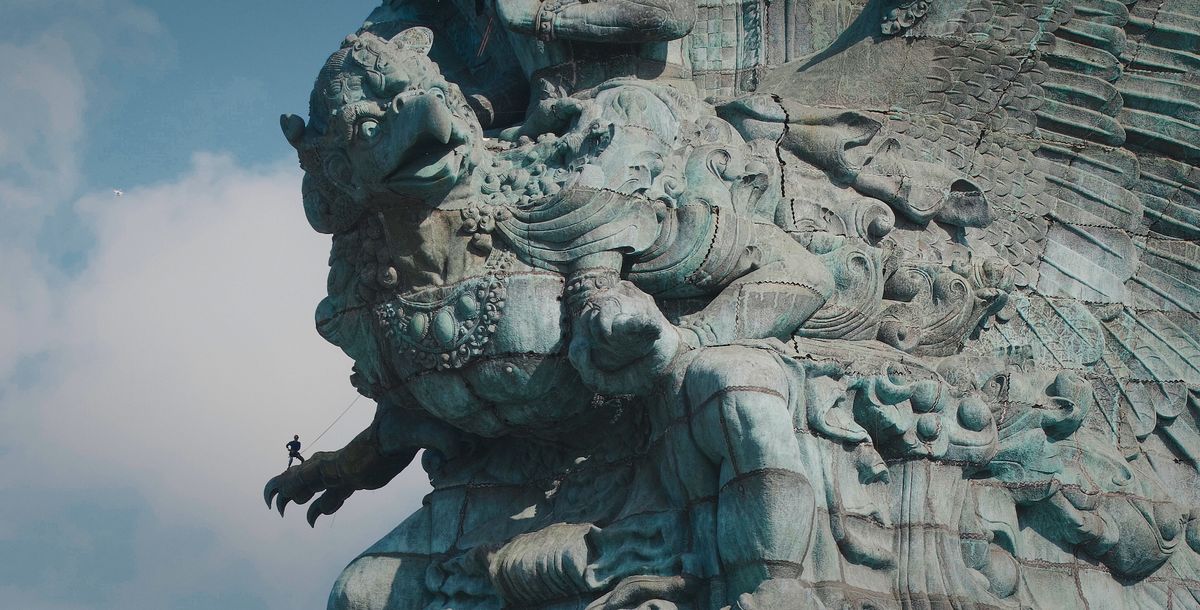Sculpting the Giant, a documentary that had its world premiere at the Vancouver International Film Festival (until 8 October) this week, tells the story of the Balinese sculptor Nyoman Nuarta and his 28-year struggle to build a 122-metre-tall sculpture of the Hindu deity Vishnu and his vahana Garuda as part of a “cultural park” in Bali. It now stands as the world’s largest brass and copper structure, standing about one third taller than the Statue Liberty in New York harbour.
Fittingly for an artist who specialises in giant outdoor sculptures and installations, Nuarta himself is larger than life. An artist bestowed with the title of Chevalier dans l’Ordre des Arts et Lettres by the French government, he was Indonesia’s first art star and a favourite of former dictator Suharto—a connection that came back to haunt him when the regime fell in 1998.

A scene from Sculpting the Giant (2022) Courtesy Seeds Motion, GFS Indonesia, Phiwedari
Before Suharto’s resignation, sparked by nation-wide riots and protests, Nuarta was commissioned by the president to build a 30-metre-tall statue of a naval officer. That work became a prototype for his Garuda Wisnu Kencana statue, but the larger and far more ambitious project ultimately took three decades to complete, plagued by natural disasters, corruption, regime change and economic collapse. The film is as much a reflection on the power of art to transcend such challenges as it is the story of contemporary Indonesia.
When Nuarta first began the project, he was by his own admission “still handsome” and his reflection on 28 years of struggle to complete the work speaks to the Indonesian project itself. Formed by a series of hand-sculpted copper pieces in Bandung, West Java, and transported hundreds of miles away to an abandoned limestone quarry turned tourist park in Bali, the sculpture becomes a metaphor for a country formed of archipelagos with distinct languages and cultures. At once a meditation on megalomania, dictatorship and the artist as shaman, the film takes viewers on a strange road trip through the heady mix of art, politics and religion that still defines Indonesia.

Artist Nyoman Nuarta in a scene from Sculpting the Giant (2022) Courtesy Seeds Motion, GFS Indonesia, Phiwedari
Dream-like sequences of special Balinese ceremonies seeking permission from and giving offerings to local deities to proceed with the project mix with news footage of political turmoil, military parades and archival footage from the 1990s. Nuarta’s superhuman struggle to overcome damage from fires, landslides, recession and corrupt associates recalls the heroes of the Ramayana; while his wife Lakshmi’s devotion to running the business side of his obsession suggests that of Vishnu’s wife of the same name.
The sense of vertiginous freefall as Indonesia’s post-Suharto democratic opening descended into economic ruin and Islamist extremism is echoed in the film’s many shots of workers rappelling down the façade of Vishnu’s face at 120 metres. These are juxtaposed with news footage of citizens looting shops and burning effigies of Suharto and preceded, in scenes reminiscent of The Year of Living Dangerously, by footage of shadow puppet plays.

A scene from Sculpting the Giant (2022) Courtesy Seeds Motion, GFS Indonesia, Phiwedari
Scenes of the artist’s fascinating yet painstaking process—which begins with a model using plasticine fibreglass moulds, and small layers of bronze pieces starting at the bottom and locked together by skeletal scaffolding—are paired with interviews with his family despairing over his impractical nature. The film’s largely happy ending has a bittersweet tinge—the project was only completed after Nuarta sold all his shares in it to the government.
Rather appropriately for this Indonesian Fitzcarraldo, the first-time film-making duo was also plagued by difficulties, including a pandemic-era financial crisis. But, like the subject of their film, co-directors Banu Wirandoko and Rheza Arden Wiguna persevered. And when the final scenes of a cheering crowd of workers celebrating the project’s completion arrive, the viewer wants to cheer on the production team as well, who overcame their own odds to produce a beautifully shot film, bathed in both the romance and reality of contemporary Indonesia.
Watch the trailer for Sculpting the Giant:
- Sculpting the Giantpremiered at the Vancouver International Film Festival on 2 October


